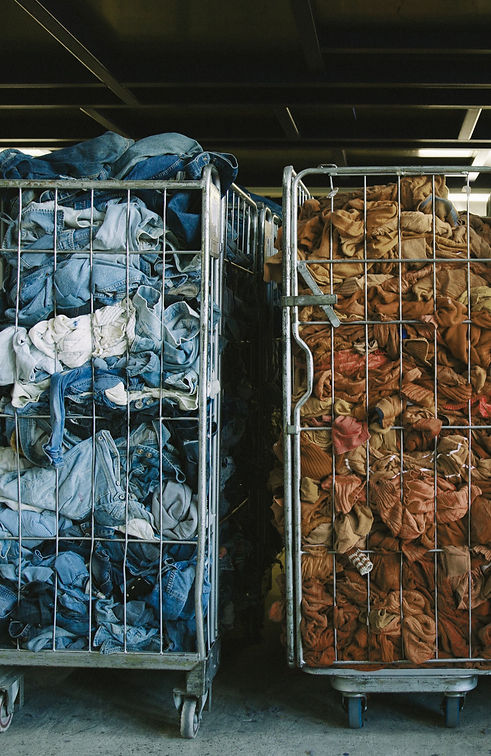IMPACT
BioFold is inspired by the abundance of wasted natural fibers derived from plants and/or textile wastestreams.
BioFold is made of 100% renewable and biodegradable materials, sourced locally in The Netherlands and surrounding areas. As experts in material properties of textiles, we conduct research into innovative and site-specific design solutions. We work closely with manufacturers and suppliers in order to maximise traceability. We are committed to creating a fully circular production chain as minimising our impact is at the forefront of all development.
The Biofold product is biobased, waste based and recycleable. Most parts of the BioFold panels are removable and reusable and parts that are suitable for reuse are biodegradable and recyclable.

REVIVED
BioFold utilises natural fibres or textile waste streams that are otherwise difficult to recycle and combines them with a biobased plastic to create new biocomposite material.
RESHAPED
Using a circular process and digital production techniques, we transform the biocomposite into products with high quality, functional, sensorial and flexible architectural applications.

LIFE CYCLE ASSESSMENT (LCA)
In the Netherlands, the building sector is a mostly linear system, with only 13% of input materials being derived from secondary or renewable resources. In turn, we believe that it is important to strive for a more sustainable industry and evaluate our own products on how they affect our environment.
To better understand the environmental impact of BioFold we conducted a comprehensive Life Cycle Assessment (LCA). During the LCA we calculated the eco-costs and carbon footprint of the product at every stage of its life. The graphs bellow compare BioFold to other sustainability-focused acoustic materials, showcasing its low carbon footprint and minimal environmental burden. Thanks to the innovative implementation of hemp and an environmentally-conscious production cycle, BioFold distinguishes itself as a sustainable building material.
BioFold utilises natural fibres or textile waste streams that are otherwise difficult to recycle and combines them with a biobased plastic to create new biocomposite material.


Carbon Footprint (kg CO₂eq.)
Eco-costs (€/m²)
BioFold hemp biocomposite 3mm
-0.23
0,17
1.55
1,20
BioFold Acoustic panel

